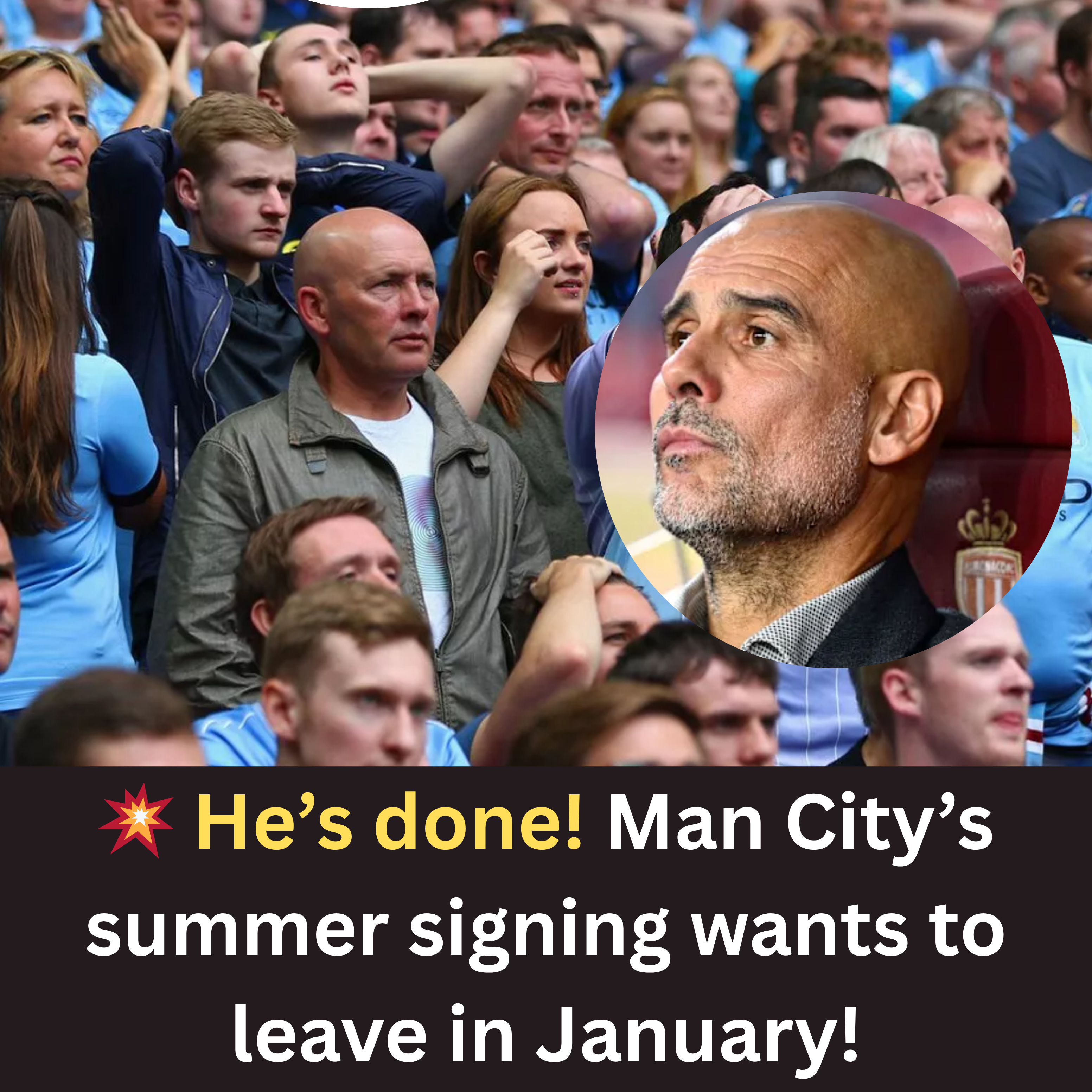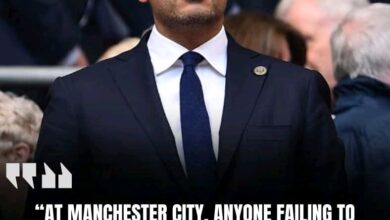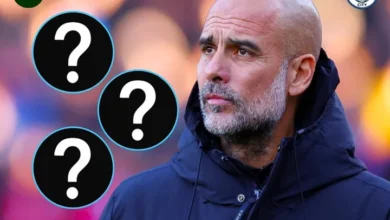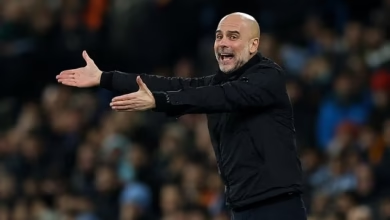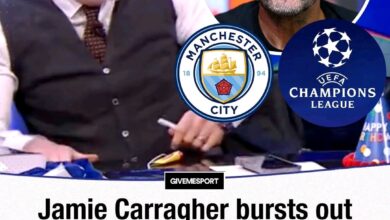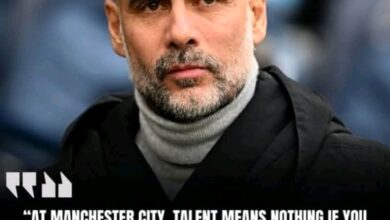I remember Sir Alex Ferguson came to watch me.” Ferguson saw two City players as superstars during his time at the club and he was desperate to have them under his wing

Sir Alex Ferguson’s legendary 27-year tenure at Manchester United was built on an unwavering pursuit of excellence, tactical brilliance, and an eye for exceptional talent regardless of which club they represented. Even when it came to Manchester City—United’s fierce crosstown rivals—Ferguson was never too proud to acknowledge quality when he saw it. Recent revelations have shed light on two Manchester City legends that the Scottish tactician desperately wanted to bring to Old Trafford, while also exposing the strict, uncompromising management philosophy that made him one of football’s greatest ever managers.
The City Stars That Got Away
Sergio Aguero: The Striker Who Tormented United
Perhaps no player inflicted more psychological damage on Sir Alex Ferguson’s Manchester United than Sergio Aguero. The Argentine striker, who arrived at Manchester City from Atletico Madrid for £38 million in 2011, became synonymous with some of Ferguson’s darkest moments in football. Yet, remarkably, Ferguson harbored genuine admiration for the very player who caused him so much anguish.
Aguero’s impact was immediate and devastating for United supporters. In his debut season, he played pivotal roles in two moments that still haunt the red half of Manchester. First came the humiliating 6-1 thrashing at Old Trafford, where Aguero found the net in what remains one of the most shocking results in Premier League history. Then came the coup de grâce—that famous last-gasp winner against Queens Park Rangers on the final day of the 2011/12 season, snatching the Premier League title from United’s grasp in the most dramatic fashion imaginable.
Despite these painful memories, Ferguson’s professional admiration for Aguero never wavered. In a 2021 interview with former captain Gary Neville for a SPORTbible Q&A, Ferguson was characteristically honest when asked about players he wished he had managed during his illustrious career. While he mentioned Tottenham’s Harry Kane, Dele Alli, and Heung-Min Son, it was his praise for Aguero that truly stood out.
“Aguero has been a terrific striker, there’s no doubt about that,” Ferguson admitted. “His goalscoring has been exceptional. I think that the top teams always produce a player that can stand out.” This admission speaks volumes about Ferguson’s character—his ability to separate personal disappointment from professional assessment, recognizing genuine quality even in a player who had caused him considerable pain.
Aguero would go on to become Manchester City’s record goalscorer, netting 260 goals in 390 appearances across a decade of service. His legacy at the Etihad Stadium is immortalized not just in the record books but literally in bronze, with a statue erected outside the ground alongside fellow legends David Silva and Vincent Kompany. For Ferguson, Aguero represented the type of clinical finisher that could have added another dimension to United’s already formidable attacking arsenal.
Vincent Kompany: The Leader That Slipped Through United’s Fingers
If Aguero was the goalscorer Ferguson admired from afar, Vincent Kompany was the one that truly got away. The story of Kompany’s near-miss with Manchester United is one of football’s great sliding doors moments—a tale of impeccable timing, poor performance, and destiny that ultimately shaped the trajectory of Manchester football.
Ferguson’s interest in Kompany dates back to when the Belgian was just 17 years old, emerging through the ranks at RSC Anderlecht. The young defender had caught the attention of scouts across Europe, and Ferguson himself made the trip to Celtic Park to watch Kompany in Champions League action. However, fate intervened in the most unusual way—Kompany endured a nightmare performance in Anderlecht’s 3-1 defeat to Celtic, a display so poor that it may have inadvertently saved his future.
“I remember it being a special night, but I think I was fortunate to play poorly, because I remember Sir Alex Ferguson came to watch me,” Kompany recalled in a September 2024 press conference. “If I’d played well, maybe he would’ve made an offer for me. But I’m glad I ended up at the blue side of Manchester.”
This admission reveals the razor-thin margins that often determine football careers. One poor performance potentially changed the entire landscape of Manchester football, as Kompany would go on to become one of City’s greatest ever players while United struggled to find defensive stability in the years following Rio Ferdinand and Nemanja Vidić’s respective declines.
Ferguson’s interest didn’t end there, however. Kompany remained on United’s transfer shortlist as late as 2004, identified as a potential long-term replacement for Rio Ferdinand during the defender’s lengthy suspension for missing a drugs test. With central defense a priority, United ultimately opted to sign Gabriel Heinze from Paris Saint-Germain and bring through academy graduate Gerard Piqué. While Piqué would later become a Barcelona legend, neither signing provided the long-term defensive leadership that Kompany would have offered.
Kompany remained at Anderlecht for three more seasons before joining Bundesliga side Hamburger SV in 2006. Two years later, Manchester City secured his services for what now appears to be a bargain £6 million fee—a transfer that would prove transformational for the club’s ambitions.
Under City’s ownership, Kompany evolved into much more than just a defender. He became the embodiment of the club’s new era, a leader who guided the team through their transformation from mid-table mediocrity to domestic and European powerhouse. His trophy haul speaks for itself: four Premier League titles, two FA Cups, six League Cups, and countless individual accolades across 360 appearances.
Perhaps most painfully for Ferguson, Kompany scored crucial goals in some of City’s biggest moments against United. His thunderous strike in the April 2012 derby at the Etihad Stadium helped secure a vital 1-0 victory in a title-defining match, contributing to that dramatic final-day triumph that saw Aguero’s goal seal City’s first Premier League crown.
Ferguson’s Prophetic Derby Prediction Comes Back to Haunt Him
One of football’s most compelling narratives involves predictions that age poorly, and Sir Alex Ferguson provided one of the sport’s most memorable examples regarding Manchester City’s future prospects. In 2009, shortly after City’s takeover by the Abu Dhabi United Group, Ferguson was asked whether the blue half of Manchester would ever enter a derby as favorites against United.
His response was emphatic and, in hindsight, remarkably short-sighted: “What time is it? I think it’s time for me to leave. Not in my lifetime.”
This declaration came at a time when City had never finished higher than fifth in England’s top division during Ferguson’s tenure at Old Trafford—that achievement dating back to 1992. The club had even endured the humiliation of relegation to the third tier in 1998, though they had bounced back with consecutive promotions to return to the Premier League.
The transformation that followed City’s financial investment made Ferguson’s prediction age like milk in the sun. By 2022, just over a decade later, BBC commentator Guy Mowbray delivered one of football’s most brutal reality checks during City’s 6-3 demolition of United at the Etihad Stadium.
“Alex Ferguson was asked in 2009 if City could ever go into a derby as favourites,” Mowbray observed as cameras focused on a visibly uncomfortable Ferguson in the directors’ box. “He said, ‘Not in my lifetime’. Now, it’s every time.”
This moment crystallized the complete role reversal in Manchester football’s power dynamic. Ferguson, who had watched City struggle in the lower divisions and fight relegation battles, was now witnessing Erik ten Hag’s United being systematically dismantled by their cross-town rivals. The 6-3 scoreline flattered United—they had been 4-0 down at one point, thoroughly outclassed by a City side that now routinely entered derbies as overwhelming favorites.
The Uncompromising Standards: Ferguson’s Rules and Expectations
While Ferguson’s ability to identify talent was legendary, it was his uncompromising approach to management that truly set him apart. Recent revelations from former players have provided fascinating insights into the exacting standards he demanded, both on and off the pitch.
The 45-Minute International Rule
Wayne Rooney, England’s second-highest goalscorer with 53 goals in 120 appearances, revealed one of Ferguson’s most controlling tactics regarding international duty. Despite his own background with Scotland, Ferguson viewed international football with deep suspicion, particularly friendly fixtures, which he believed “interfered with the clubs’ ambitions.”
“I always remember Sir Alex Ferguson before we’d go in for some of the games, I’m sure he’d speak to the England manager as well,” Rooney disclosed on ‘The Wayne Rooney Show’. “He’d be like: ‘Right, you, no more than 45 minutes. Make sure you come off after 45 minutes or you only play 45 minutes.'”
This revelation highlights Ferguson’s protective instincts toward his players and his willingness to challenge international managers directly. However, it also showcased the different mentalities among his squad. While some players welcomed the protection, especially regarding friendly matches, Rooney represented the opposite end of the spectrum.
“So, I’d get to England and I’d be like: ‘Boss, I want to play 90 minutes. I want to play the full game, don’t take me off,’ because I used to love playing,” Rooney explained. “Some players were different and some players were protecting themselves with injuries as well, especially in the friendly games. But I used to love going.”
Ferguson’s stance led to a notable 2013 dispute with England manager Roy Hodgson, who suggested that club attitudes had led some players to treat international duty as a holiday. Ferguson’s response was characteristically direct: “They have been doing it for the last decade, playing a friendly in the week before the season starts. Tell me the sense of that. It doesn’t matter what way you look at it.”
The Penalty Box Philosophy: Contact Equals Collapse
Perhaps even more revealing was Ferguson’s tactical instruction regarding penalty situations, as disclosed by Paul Scholes during ‘The Overlap Fan Debate’. The legendary midfielder revealed that Ferguson had a simple but effective philosophy when it came to winning penalties: if there’s contact, go down.
“Our manager [Ferguson] said it all the time. If someone touches you, you should go down,” Scholes admitted. “And sometimes if it didn’t happen and you stayed up on your feet, he used to go fucking mental. Get down!”
This instruction reveals Ferguson’s pragmatic approach to the game’s gamesmanship elements. While he distinguished between winning legitimate penalties from genuine contact and outright diving, he demanded that his players be street-smart enough to capitalize on opponents’ mistakes.
The policy wasn’t without its complications, particularly with players like Cristiano Ronaldo and Ashley Young, who occasionally took Ferguson’s instructions too far. Scholes revealed that the team collectively disapproved of blatant diving: “We weren’t happy with that. As a collective, as a team, we didn’t like it. He got told about that and it soon stopped.” Regarding Ashley Young, Scholes was even more direct: “Ashley Young was a nightmare because he used to dive all the time.”
The Thierry Henry Verdict: Ferguson vs. Guardiola
The debate over football’s greatest manager often comes down to two names: Sir Alex Ferguson and Pep Guardiola. Interestingly, Thierry Henry—who played under both managers—provided a definitive answer when pressed to choose between them, and his reasoning illuminates what made Ferguson truly special.
Henry, who won the treble under Guardiola at Barcelona in 2008-09, might have been expected to favor his former boss. However, when discussing the greatest manager debate with Jamie Carragher on Sky Sports, Henry’s response was immediate and unequivocal.
When Carragher began to explain his choice of Ferguson, Henry quickly interjected: “he did it with Aberdeen.” This simple statement encapsulated the key differentiator between the two managerial giants.
Before his legendary tenure at Manchester United, Ferguson had already achieved the impossible in Scotland. Taking over Aberdeen in 1978, he transformed them from also-rans into genuine challengers to the Old Firm duopoly of Celtic and Rangers. In 1980, Aberdeen became the first team outside of Glasgow’s big two to win the Scottish league title in 15 years.
Even more remarkably, Ferguson guided Aberdeen to European glory in 1983, defeating Real Madrid 2-1 in the European Cup Winners’ Cup final—the last time the Spanish giants lost a European final. This triumph came after eliminating Bayern Munich in the quarter-finals, establishing Ferguson’s credentials on the continental stage.
Henry’s reasoning was simple but profound: while Guardiola has achieved incredible success at Barcelona, Bayern Munich, and Manchester City, he has only managed elite clubs with significant resources. Ferguson’s achievement with Aberdeen—transforming a provincial Scottish club into European champions—demonstrated a different level of managerial brilliance.
“So, Sir Alex is the winner,” Henry concluded firmly, settling a debate that continues to rage among football purists.
The Legacy of Standards and Missed Opportunities
The stories surrounding Ferguson’s pursuit of Aguero and Kompany, combined with revelations about his uncompromising management style, paint a picture of a manager who left no stone unturned in his pursuit of excellence. His willingness to acknowledge quality in rival players, even those who caused him pain, demonstrates the objectivity that made him successful over nearly three decades.
Ferguson’s strict rules—from international duty limitations to penalty box instructions—reveal a manager who understood that success came from controlling every variable possible. While some might view these as overly controlling, they represent the marginal gains philosophy that predated the concept’s popularization in modern football.
The transformation of Manchester City from relegation candidates to Ferguson’s prediction-defying domestic powerhouse serves as a reminder of football’s unpredictability. Ferguson’s 2009 declaration about City never being derby favorites in his lifetime has become one of sport’s most famous examples of hubris, though it’s worth noting that his prediction was entirely reasonable given City’s historical performance.
Perhaps most importantly, these revelations humanize Ferguson, showing a manager capable of admiration for opponents, frustration with uncontrollable circumstances, and the wisdom to adapt his methods to different personalities within his squad. Whether dealing with Rooney’s international enthusiasm or Ronaldo’s occasional theatrical tendencies, Ferguson’s approach was always tailored to maximize each player’s potential while maintaining his non-negotiable standards.
The legacy of these missed opportunities—particularly Kompany—continues to influence Manchester football today. United’s defensive struggles in the post-Ferguson era might have been mitigated by the Belgian’s presence, while City’s transformation into domestic and European contenders was built on the foundation that Kompany provided as captain and leader.
In the end, Ferguson’s story with these City legends serves as a fascinating footnote to his incredible career—a reminder that even the greatest managers don’t get every decision right, but their true measure lies in how they respond to setbacks and maintain their standards regardless of external circumstances. His prediction about City may have proven spectacularly wrong, but his ability to identify and admire quality—even in rivals—remains a testament to the football intelligence that made him one of the game’s true greats.
